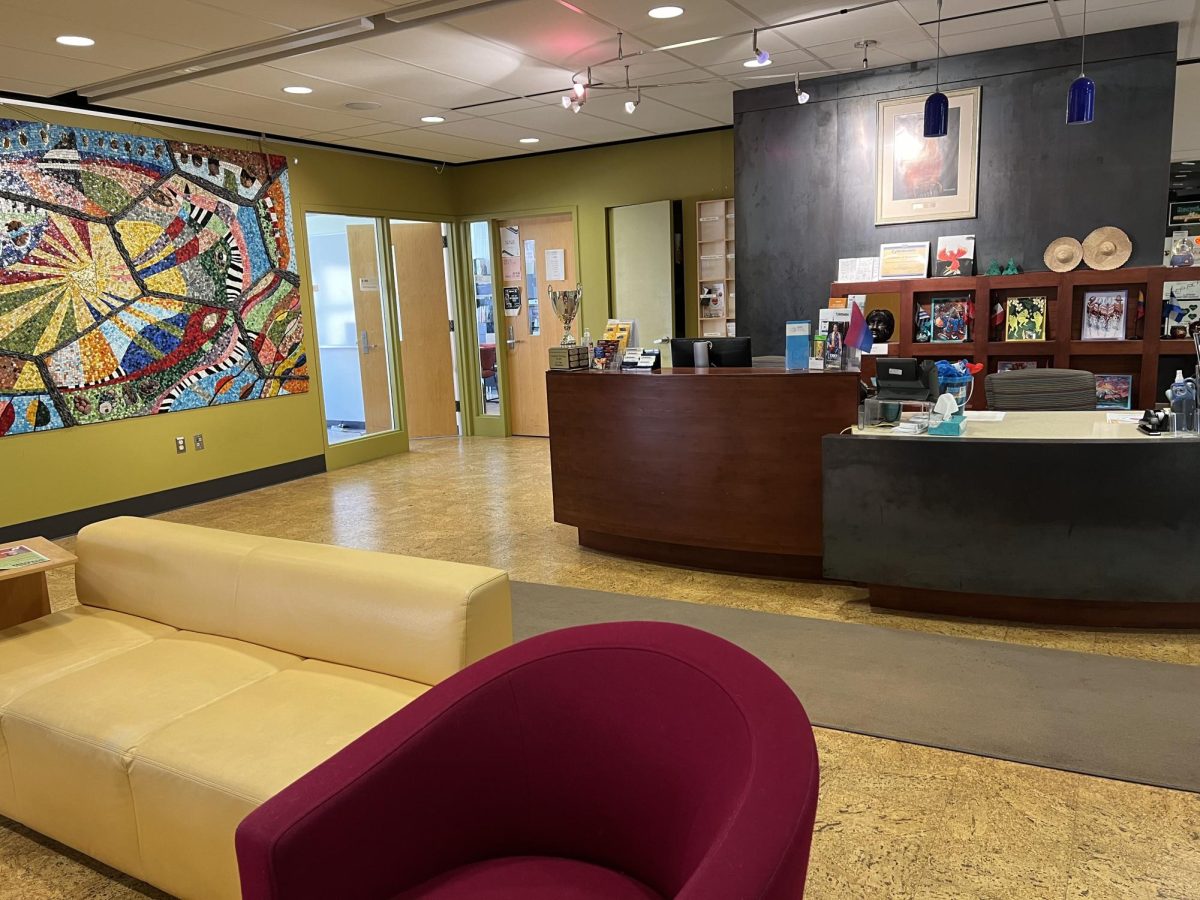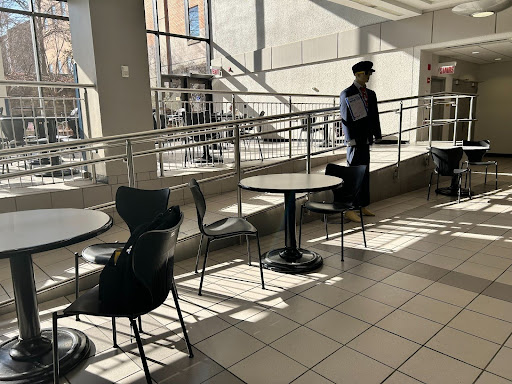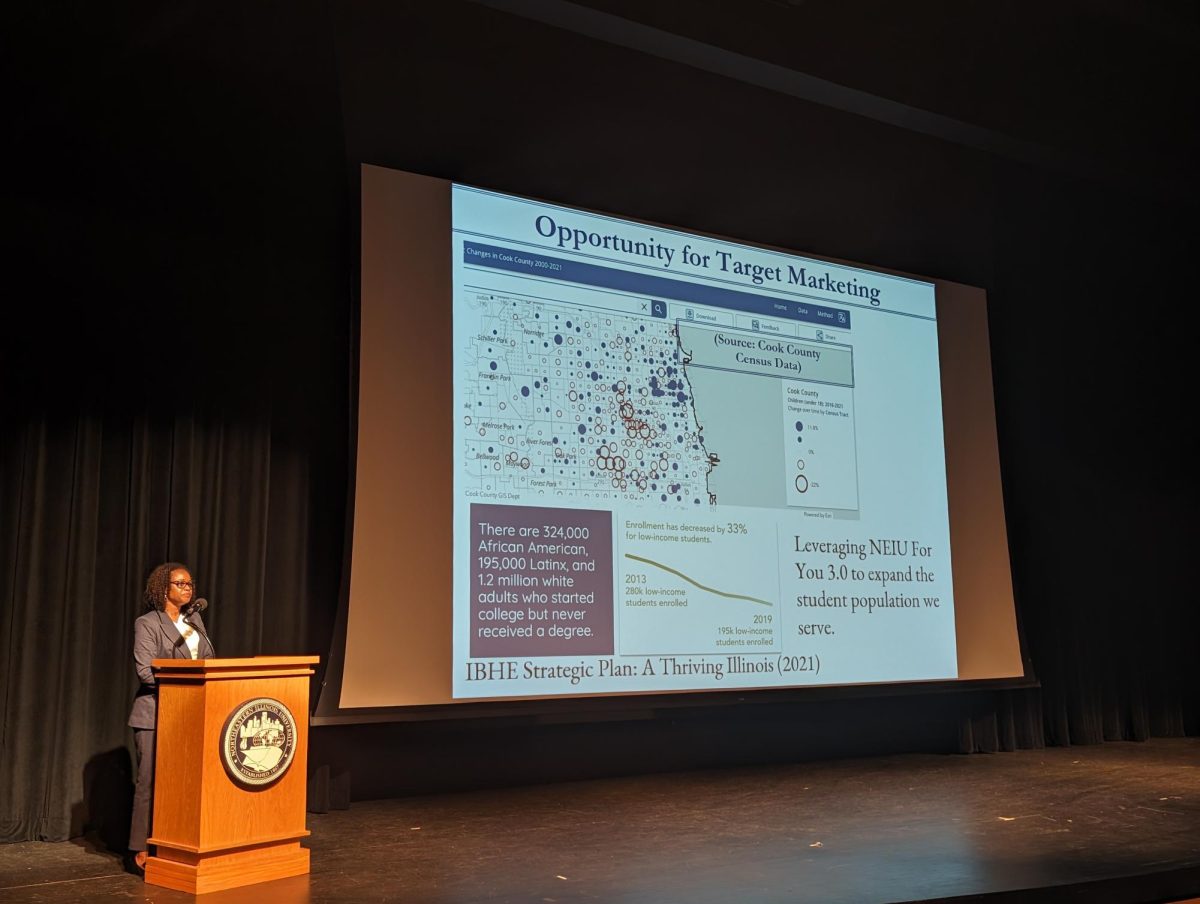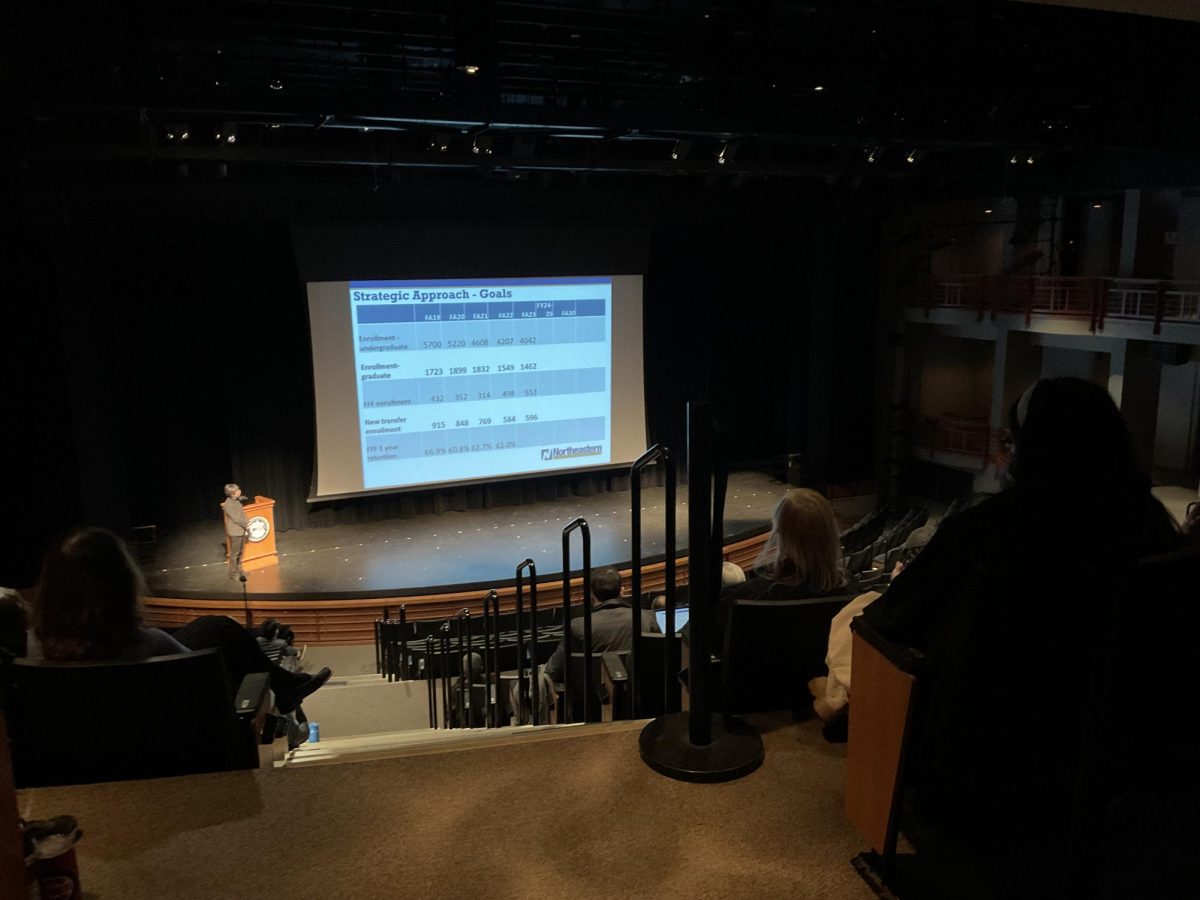According to the NEIU website, the Angelina Pedroso Center for Diversity and Intercultural Affairs (APCDIA) — known on campus as the Pedroso Center — prides itself on providing “an environment of inclusivity across cultures, socio-economic class, sexual orientation, gender and other social identities.” As of 2021, the Centers for Disease Control and Prevention estimates that 27% of Americans have a disability. How accessible is the cultural center for disabled students? And how do the Pedroso Center employees accommodate students?
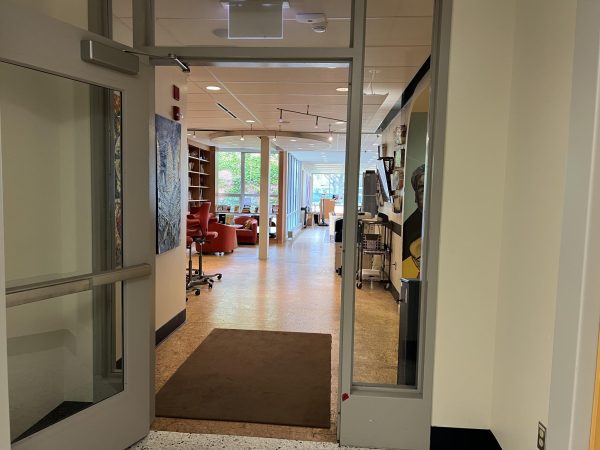
According to NEIU’s Office of Equity, the definition of accessibility is “the condition of meeting the access needs of those who want and need to participate fully in a group, space or activity. The kinds of access needs someone may have are wide-ranging. They can be temporary or permanent, emotional, financial, linguistic, cognitive, or physical, among many other things.”
Alex Gonzalez, the business manager of the Pedroso Center stated that the “Pedroso Center is very equipped” for all students in hosting events. For events, Pedroso Center has a microphone that can be used to amplify presenters for students who are hard of hearing and an overhead projection that can also be used to magnify images and text for visually impaired students during events.
According to NEIU’s Student Disability Services (SDS) webpage, SDS has a full-time interpreter but students must be approved to get “Sign Language interpreting accommodations for academic accessibility,” Gonzalez said during the interview, “ Everyone is very equipped, nice if someone would provide sign language assistance to help with the programming communication.” If needed for events, Pedroso Center will have to outsource a Sign Language interpreter that can “range from $18 to $50” per hour as listed by Universal Translation Services.
In the Pedroso Center, Gonzalez lists the T.V. monitors that can help visually impaired students display future events that will take place in the center. The computer monitors can be used to accommodate two disabilities: they can show closed captioning for Deaf and hard of hearing students, and they can magnify images and text for students with visual impairments. While the layout of the Pedroso Center is very spacious to host many types of events, in case of an emergency, Gonzalez said that “they don’t have a wheelchair accessible [or] assigned to the Pedroso Center and it would be very helpful if a wheelchair was assigned to the Pedroso Center.”
Sam Helgerson, an NEIU undergraduate student stated that “The Pedroso Center is accessible for all students,” She also said, “The Pedroso Center is very accessible for people in wheelchairs, which is good.” The Pedroso Center is located near the parking lot with accessible parking spaces. It is easy to access through the entrance to the building because it has automatic sensors to open the doors. The entrances of the Pedroso Center are wide enough for a person who is in a wheelchair to access it.
The Pedroso Center passes out event flyers, and they even have all the upcoming events listed on their website. However, the Center may need to improve its outreach to students with disabilities. Helgerson said on Pedroso Center events, “Most of the time when the Pedroso [Center] is having an event, I don’t find out about it until after it’s happening, so I feel as included as I can being dead.”
The reception of Pedroso Center is on the right side when you enter the Pedroso Center with two helping desks black and brown.
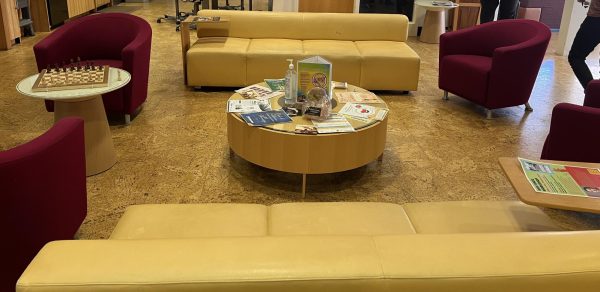
Located at the entrance is the reception area of Pedroso Center, which aims to be accessible for a person who uses mobility devices. It has two levels of desks, to accommodate those with height differences. The Pedroso Center is very quiet, which is more accessible for people who are sensitive to loud environments (for example, people who are hard of hearing or neurodivergent).
Pedroso Center has two entrances and a reception desk that are accessible to wheelchair users. It can be improved by making more space around the furniture so a blind person using a white cane can sit in this area easily. Gonzalez notes that the chairs are very heavy to move. After an incident with a student who had a medical problem, Gonzalez had difficulties moving the chairs and is looking to switch to easy-to-move furniture.
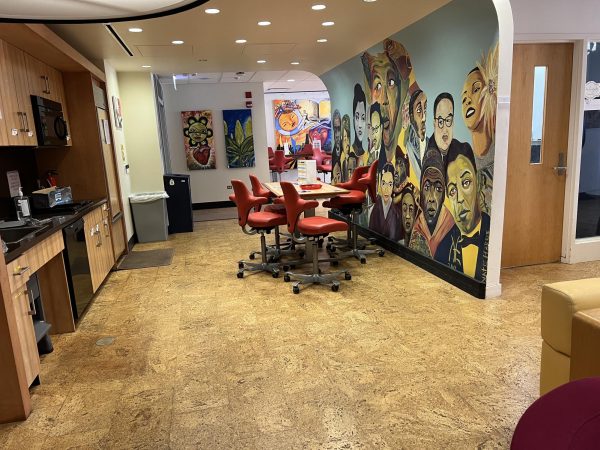
To accommodate commuter students, the Pedroso Center offers a kitchenette area for those who can cook meals or need to use the space for other reasons. The fridge in the Pedroso Center is accessible to all students, but you have to remove your food before closing time. The microwave is too high for a person who is in a wheelchair user to use. The sink will be difficult for a wheelchair person to use. The red chairs can be adjusted according to the person’s height. The table in the kitchenette area can also be adjusted.
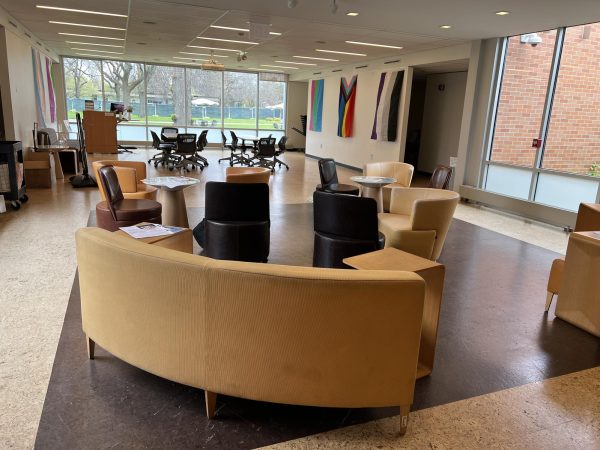
The center of the Pedroso Center, where all of the programming is held, is spacious for wheelchair users and people who use a cane for vision impairment. All the furniture is moveable, and the furniture layout changes depending on the event. The chairs were organized in rows and columns which was nice and more spacious. In the interview, Gonzalez said, “Space is very customizable, the layer of the event changes depending on the event.” The sitting area with black and yellow chairs and couches is compacted together, which should be more spacious for someone with visual disabilities to access.
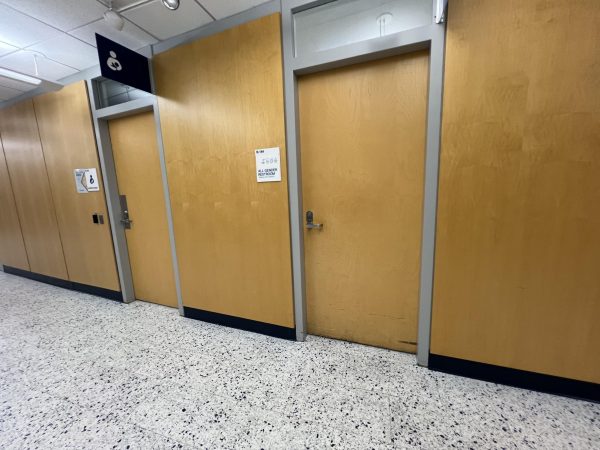
The Pedroso Center provides programming and initiatives in a welcoming environment designed to educate, empower, and also retain students from socially and culturally diverse backgrounds. SDS can coordinate inquiries from students regarding auxiliary aids, academic adjustments, or other reasonable accommodations.
The Pedroso Center (APCDIA) is very accessible to all students including disabled students and staff. The Pedroso Center employees are required to “create an environment that honors all differences, supports the holistic needs of students, and empowers them to be agents of social change. We foster the success of historically underserved student populations through mentorship, intercultural education, awareness-building workshops, and programs that celebrate our unique differences.” The Pedroso Center values student success, social justice, advocacy, and leadership development.



